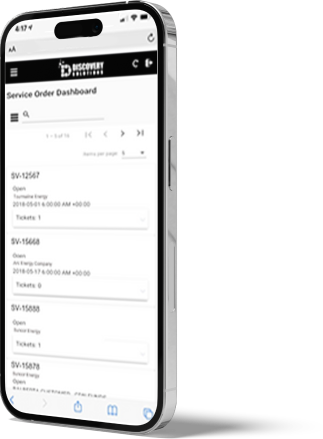Why a True ERP is a Must For Oilfield Service Companies



As we move into 2023, the digital transformation of the business world that accelerated over the past two years continues unabated. Across all industries since 2020, tech adoption has moved at a stunning pace and there is no turning back – not that anyone should want to turn back.
In an uncertain global business climate facing rising energy costs, soaring inflation, recession, labour shortages, and international conflict, it’s the businesses that streamline operations and learn to operate lean that will come out ahead. This is where technology, more specifically, a true ERP comes into play. The oil & gas sector is no exception. In a volatile market that could see disruption at any time, an ERP designed specifically for your sector will be a necessity in 2023.
We’ve written in the past about what a true ERP is and why you need one. But, to recap: Enterprise Resource Planning (ERP) is business management software that companies use to manage essential parts of their businesses and streamline processes through integration and automation. These days, a true ERP is cloud based, easy to use, and easily accessible for everyone who needs to use it at your organization.
With a true Oilfield Services ERP you only need a single solution to handle:
● Field Service Management & Field Ticketing
● Inventory & Rentals
● Manufacturing Optimization
● Distribution Optimization
● Accounting & Reporting
Why does this matter? Funny you should ask.

Why a true ERP is a necessity for the oilfield services sector in 2023
The existing way of doing things is outdated and cumbersome
For years, most OFS companies have been using accounting software, spreadsheets, and pen and paper to file tickets, manage operations and inventory, and track data. It’s a messy and cumbersome setup that makes little to no sense as we head into 2023. More recently, savvy leaders in the sector are wising up to a more efficient and cost effective solution: a sector-specific ERP. These are the leaders who will drive their companies into the new tech-driven world, leaving slower adopters in their wake. Those who believe they’re doing just fine with what they have risk being overtaken by smarter competitors with the vision to see the writing on the wall.
Those who fail to innovate ultimately fail
The history of failure to adapt to new technologies is not pretty. Examples of companies that failed because they didn’t adapt to change abound: Nokia, Yahoo, Blockbuster, HMV, Xerox … lest you think these cautionary tales don’t apply to you, you can probably assume that the leaders at those companies thought the same. When you are already struggling to keep up, it is too late. Staying ahead of the curve is the only way to go.
A true ERP saves time and decreases costs
Companies around the world will be increasing automation to become more efficient and do more with less. Enterprises are moving towards automation and the investment into tech that facilitates automation is expected to increase. Examples for OFS include digital field ticketing, invoicing, and scheduling. Automation reduces time and labour costs.
Real-time data capture and monitoring meanwhile, allow companies to share information internally and maintain visibility into operations at all times. For example, field service teams can log usage inventory and hours in real time so the dispatcher can always know what is available and what is out or needs to be restocked, and make better real-time decisions. This also applies to creating work orders, equipment usage, and labour time.

A true ERP better positions you to weather disruption and improves scalability
Automation and integrated systems decrease time spent, labour costs, and potential for error, so your business can grow and thrive. Fewer staff is required to keep things running smoothly and efficiently which frees up money to invest into expansion.
An ERP designed just for you with real-time data access allows you to better predict and manage inventory, rentals, and orders, which improves growth prospects and avoids production delays.
Inefficient and outdated processes will ultimately cost your business while a true ERP designed just for the OSF sector will streamline your entire organization, facilitate decision making and save time and money. Can you afford not to invest in a true ERP?
Don’t get left behind.

Book a Call





